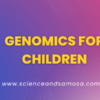Why Cholesterol is not all that BAD

Cholesterol is often made out to be the bad guy of our body, due to its close association with heart ailments. But it is very much essential, to maintain the integrity of the tissues, nerves, and immune system and cells. Cholesterol even plays a crucial role in the utilization of serotonin, the body’s “feel-good” chemical. Research says total cholesterol levels are consistently lower in more severely depressed and more aggressive patients. It has been even suggested that total cholesterol could be used as a clinically useful biological marker for detecting the risk of suicide.
Did you know that Cholesterol is not a fat, but it actually is a “sterol.” Also it does not contain any calories and because of which body cannot derive any energy from it
How much cholesterol body makes internally each day
Normal adults liver can typically synthesize around 1000 mg cholesterol per day. The liver is the primary organ where cholesterol is synthesized. Cholesterol is also synthesized to smaller extents in the adrenal glands, intestines, reproductive organs etc. https://www.news-medical.net/health/Cholesterol-Physiology.aspx On an average dietary intake contributes towards about 200–300 mg of cholesterol. The body regulates cholesterol level by regulating liver and pushing for excretion of excess cholesterol.
How much cholesterol body makes internally each day
Normal adults liver can typically synthesize around 1000 mg cholesterol per day. The liver is the primary organ where cholesterol is synthesized. Cholesterol is also synthesized to smaller extents in the adrenal glands, intestines, reproductive organs etc. On an average dietary intake contributes towards about 200–300 mg of cholesterol. The body regulates cholesterol level by regulating liver and pushing for excretion of excess cholesterol.
Functions of cholesterol in the body
- Vitamin D which is necessary for calcium absorption and preventing cancer originates as cholesterol. 7-Dehydrocholesterol gets converted into cholecalciferol–vitamin D3–as a result of UV radiation
- Bile acids – cholic and chenodeoxycholic acids are derivatives of cholesterol synthesized in the liver. Most cholesterol is produced in the body by the liver
- Brain is the most cholesterol-rich organ (around 20% of the body’s total cholesterol). The majority of the cholesterol in our brain is present in myelin sheaths. Myelin winds around nerve cell axons and insulates nerve impulses from neighboring nerve fibers.
- Defects in cholesterol metabolism lead to diseases such as Smith-Lemli-Opitz syndrome, Niemann-Pick type C disease and Alzheimer’s disease
- Human breast milk is loaded with cholesterol and also mother’s milk provides a specific enzyme to allow the baby’s digestive tract to absorb almost 100 percent of that cholesterol. Children deprived of this cholesterol at infancy may have poor eyesight and brain function.
- After the brain, the organ that love cholesterol the most are endocrine glands. Cholesterol is used as precursor molecule for synthesizing hormones: testosterone, progesterone, pregnenolone, androsterone, estrone, estradiol, corticosterone, aldosterone and others.
- Many a times infertility is an outcome of opting for low-cholesterol or cholesterol-free diet. Researchers have found that women who drink whole milk and eat high-fat dairy products are more fertile than those who stick to low-fat products.
- Immune cells need cholesterol to fight infections and to repair themselves. LDL-cholesterol (low-density lipoprotein cholesterol), the so-called “bad” cholesterol, can directly bind to and inactivate dangerous bacterial toxins, preventing them from doing any damage to the body
Cholesterol in itself is not bad, but when its level crosses the set limits, it becomes bad. Follow some simple steps mentioned below and keep the stress levels low to stay fit and no need to ‘hate’ Cholesterol.
Avoid processed food, especially foods containing processed vegetable oils and trans fats
Maintain a healthy weight—neither too heavy nor too thin
Engage in moderate exercise in the outdoors
Do not smoke and avoid exposure to environmental toxins









